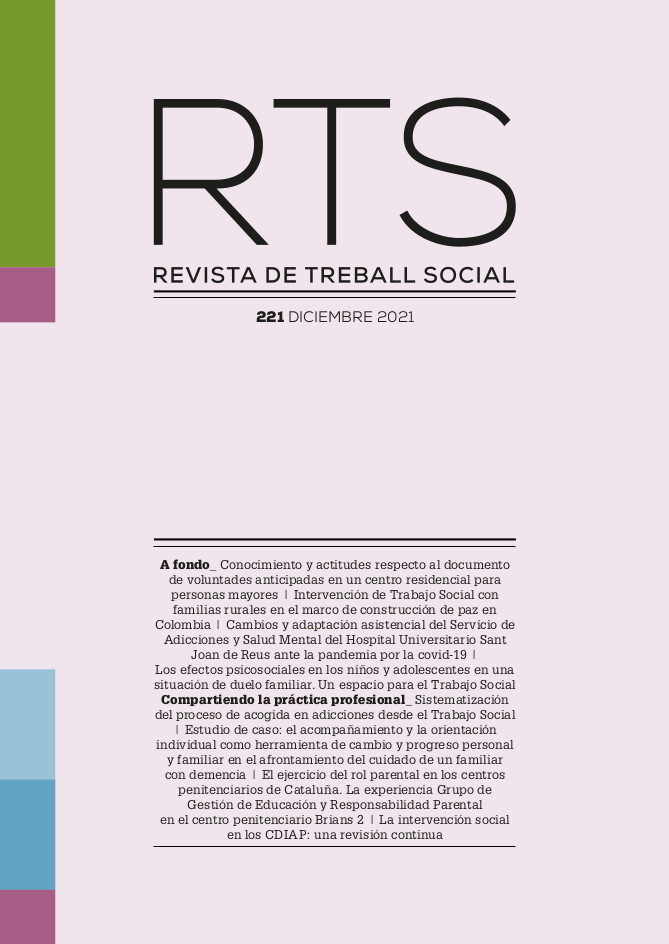Rural life as an intervention setting has been scarcely considered within the context of the fields of social work. Even so, when analysing its social, economic, cultural and political circumstances, there are situations that call for study, monitoring and contributions from the social sciences to identify needs and means of approach among families and communities, particularly in a country such as Colombia where rural territories have received scant interest and focus. In 2016, the Colombian government signed a peace agreement with the group “Revolutionary Armed Forces FARC–EP”, wherein one of the stipulations consisted of “better opportunities for the countryside”. Five years have gone by and there is still a shortage of will to overcome the social problems impacting rural populations. From the field of social work, tools have been put forward that lay the foundations
for peacebuilding from micro-spheres such as families.
The research project (Bedoya et al., 2016) from which this article stems sought to understand family practices and scenarios for creating educational strategies for regional peacebuilding. It was forged on the basis of a qualitative perspective involving rural families in the town of Guayabal de Síquima. This provided a range of levels of participation,
capacities and contributions in their capacities as collective subjects of rights; accordingly, this article makes it possible to examine the scope for intervention from the field of social work to help build the peace about which we dream in Colombia.





